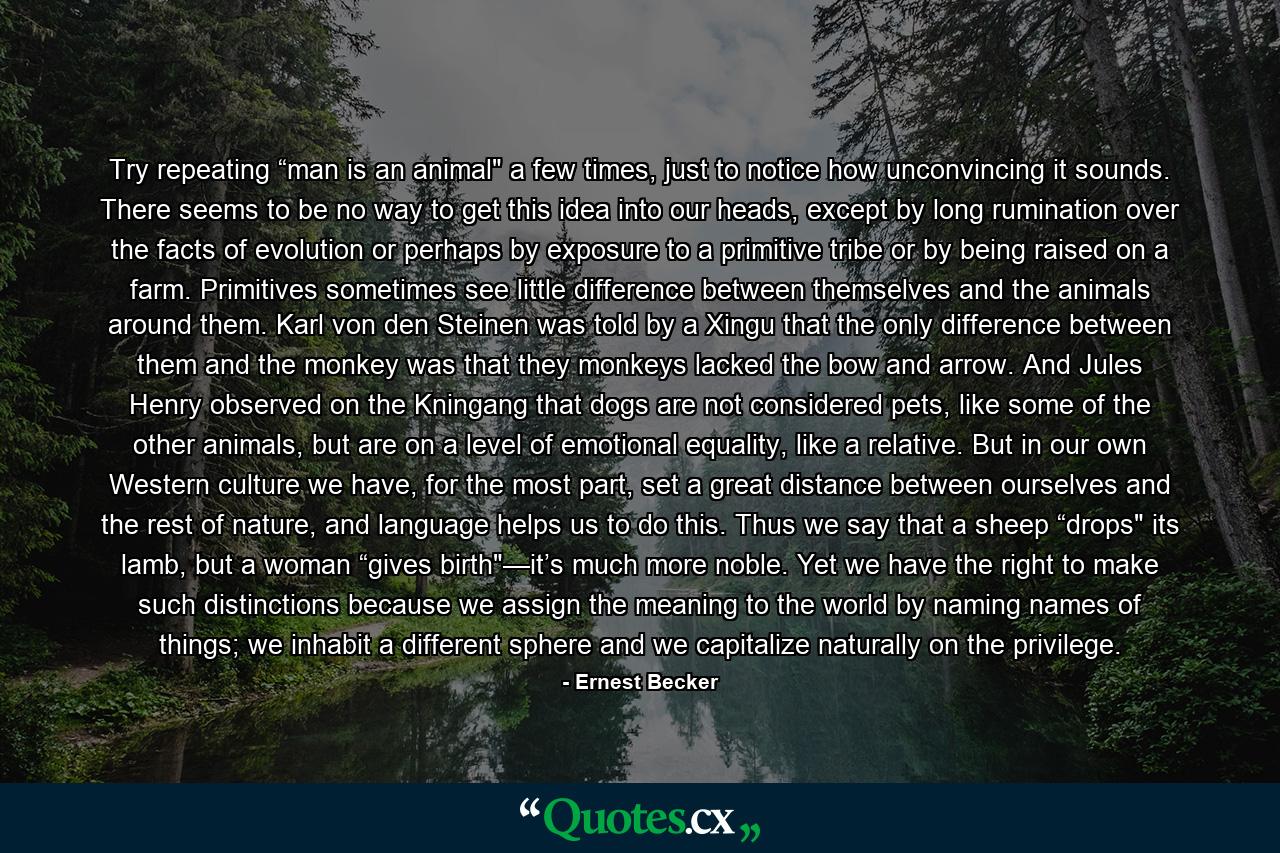Try repeating “man is an animal” a few times, just to notice how unconvincing it sounds. There seems to be no way to get this idea into our heads, except by long rumination over the facts of evolution or perhaps by exposure to a primitive tribe or by being raised on a farm. Primitives sometimes see little difference between themselves and the animals around them. Karl von den Steinen was told by a Xingu that the only difference between them and the monkey was that they monkeys lacked the bow and arrow. And Jules Henry observed on the Kningang that dogs are not considered pets, like some of the other animals, but are on a level of emotional equality, like a relative. But in our own Western culture we have, for the most part, set a great distance between ourselves and the rest of nature, and language helps us to do this. Thus we say that a sheep “drops” its lamb, but a woman “gives birth”—it’s much more noble. Yet we have the right to make such distinctions because we assign the meaning to the world by naming names of things; we inhabit a different sphere and we capitalize naturally on the privilege.
